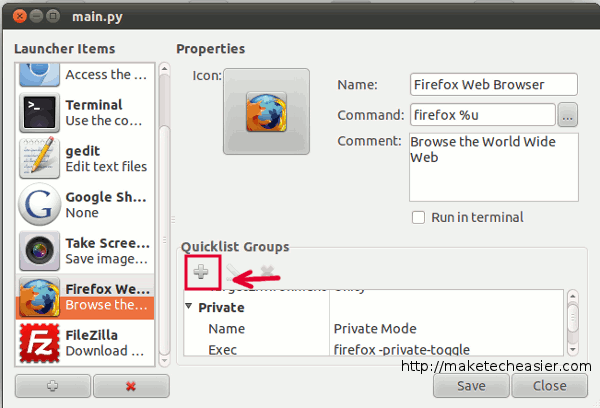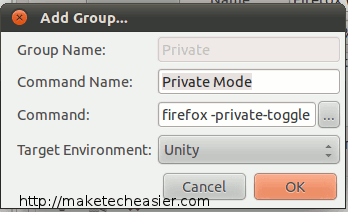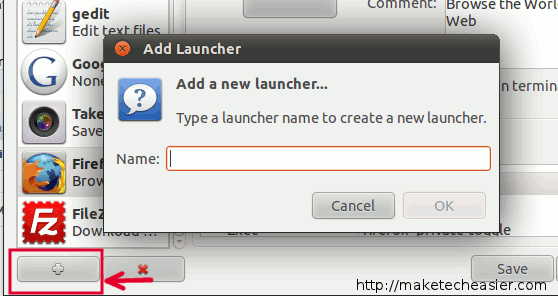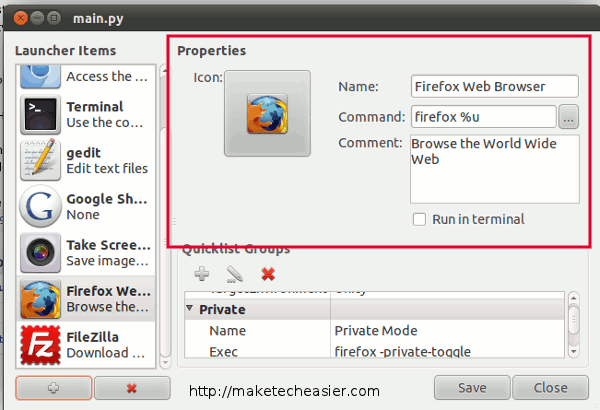Simple way to create Quicklist for Ubuntu Unity Launcher
QuanTriMang - Previously, we had an introduction to the most useful quicklist to be able to add to Ubuntu launcher. Although this feature is really essential for Ubuntu users, creating them is not just a click away. You have to copy the data on the desktop to the Home folder, make modifications and restart Unity. So how to create / edit quicklist items for the application more easily?
Unity Launcher Editor (ULE) is a python script that allows you to edit Unity launcher. It allows you to add and remove applications for Launcher, and can create / edit quicklist items for each different application. Compared to the previous way, when you have to manually edit and configure the file, this is definitely a much better way.
Setting
Unity Launcher Editor is currently not available in the Ubuntu repository, nor does it have a PPA or deb file. To install ULE we need to download the source code from LaunchPad.
sudo apt-get install bzr
bzr branch lp: unity-launcher-editor
After downloading the source code, navigate to the ' unity-launcher-editor ' folder in your Home folder. In Nautilus , navigate to the ' unity-launcher-editor -> unitylaunchereditor ' folder and double-click on the main.py file. A message box will appear as follows:

Click Run :

Use Unity Launcher Editor
ULE has three parts, the left panel shows the current applications in the launcher. You can select any application and its details will be displayed on the right panel.
The top part of the right panel shows the launcher application details while the bottom section shows the quicklist items.
To add the quicklist item to an existing application in the launcher, for example Firefox we do the following:
1. Select the icon of the application to add (here select Firefox) on the left panel.
2. Under Quicklist Groups , click the + button:

3. Name the Quicklist group and the command you want to make. For example here we add a Private quicklist, which is used to quickly open a private session in Firefox.

4. Click OK to save.
So the quicklist item will appear in your launcher. If you don't see it, logout and login again, or restart Unity ( Unity - replace ).
Add application to launcher
ULE also allows you to add new applications to the launcher. To do this follow these two steps:
1. Click the + button at the bottom of the left panel, enter the launcher name:

2. Select the newly added launchers. Edit the information at the top of the right panel.

Note: this is not the easiest way to add applications to the launcher. The easiest way is to first run the application you want to add, then right-click its icon on the launcher and select ' Keep in launcher '.
You should read it
- ★ What is the new name for Launcher on Microsoft Android and what new features do you own?
- ★ Nova Launcher - Download Nova Launcher here
- ★ GCA Launcher, a launcher for Android GO with designs that incorporate Chrome OS and Pixel Launcher
- ★ Top 6 best launcher games to launch and organize PC games
- ★ Apex Launcher updated with new Material Design design